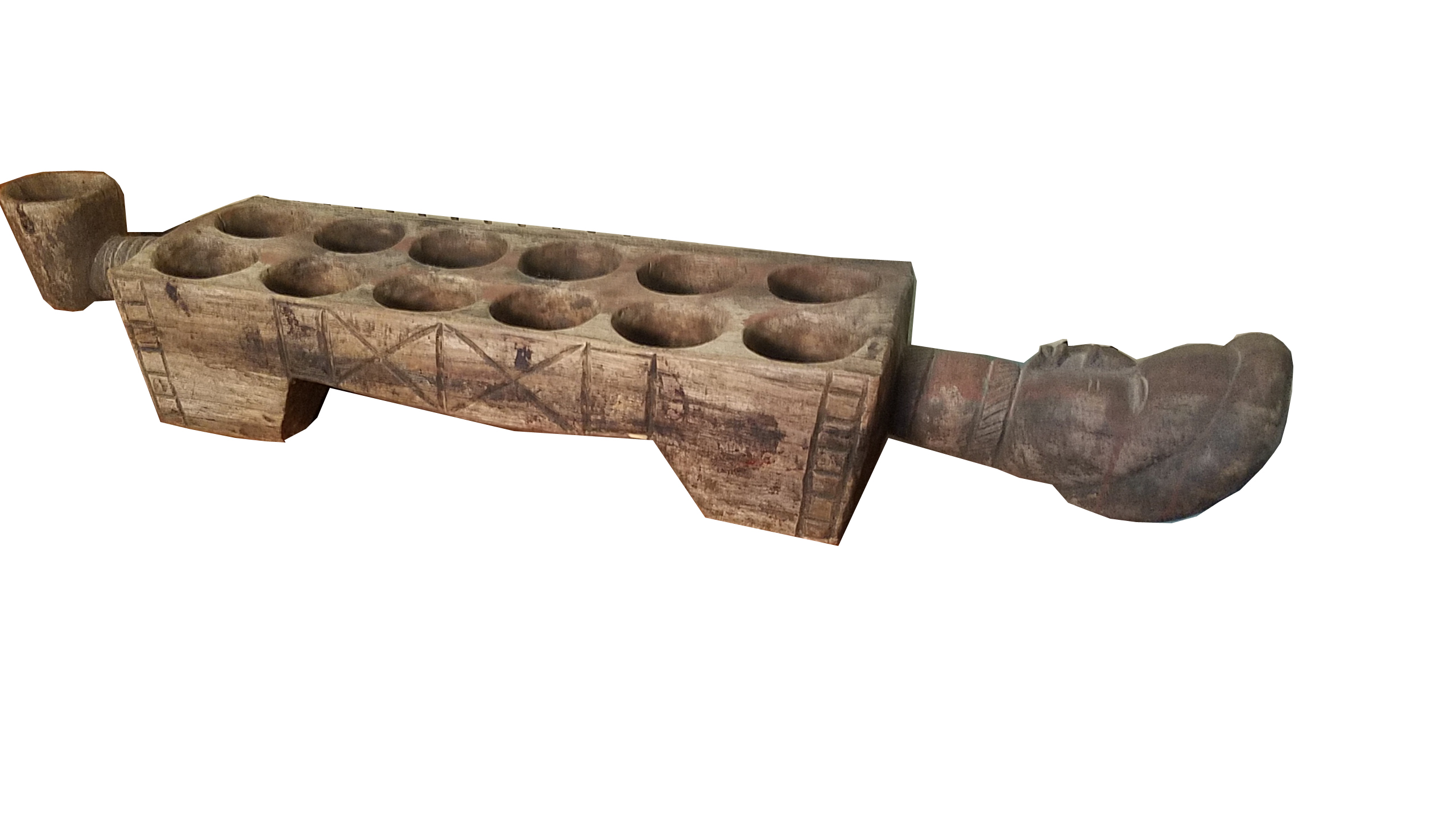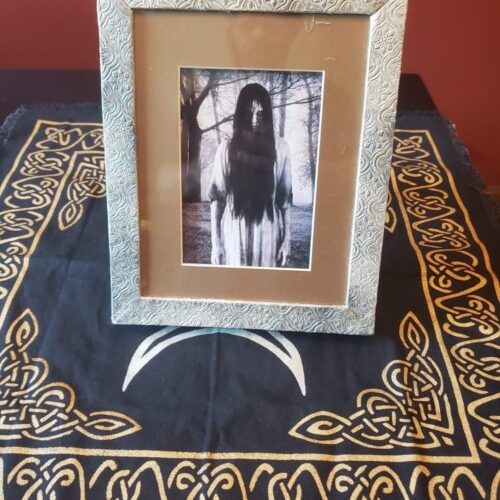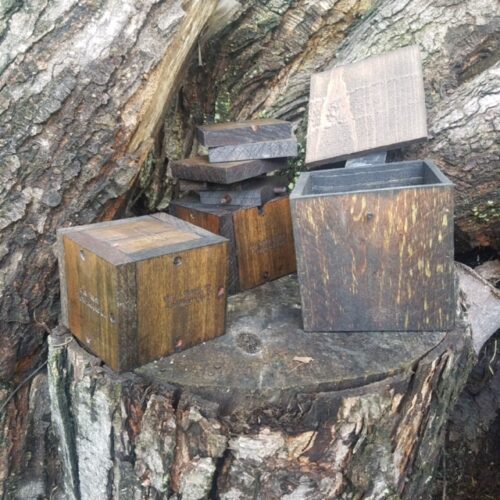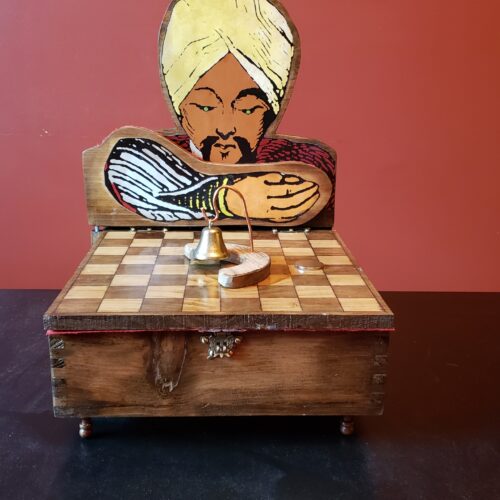MANCALA is one of several generic names for a whole family of strategy board games designed for two players who take turn to make their moves. Such games are popular through Africa and East Asia. Usually, it is played using a small number of stones, beads, seeds placed into parallel rows of recesses or pits either built into a ‘board’ or even just hollowed-out in bare ground. The usual objective of the game is to capture all or some of the opponent’s pieces in accordance with a strict set of rules. Often, the game is played in tournaments similar to chess and Go. Versions of it date back to the 7th century, and evidence suggests the game existed in ancient Egypt.
In our version, the ‘game’ can be used for a number of prediction-type routines using small wooden spheres and a canoe-shaped vessel with 6 recesses on either side. As an example prediction routine, the performer places random and differing numbers of wooden spheres into each of the six recesses on one side of the ‘board’, say, 1, 2 or 3 spheres. The spectator is then invited to freely remove all the spheres from any three of those recesses, count them and then place them all into one recess on the other side of the board. The performer now presents a copy of an old newspaper article from 1850 which reports on the outcome of a tournament match in which the winner had the same total of spheres in one and the same recess as the spectator has just freely collected. We leave you to refine the storyline, although we do supply some more detailed outlines on which to build your own ideas.
- Performer can reveal the amount of spheres and the hole they place them in.
- You know the number of spheres in any hole at any time.








Reviews
There are no reviews yet.